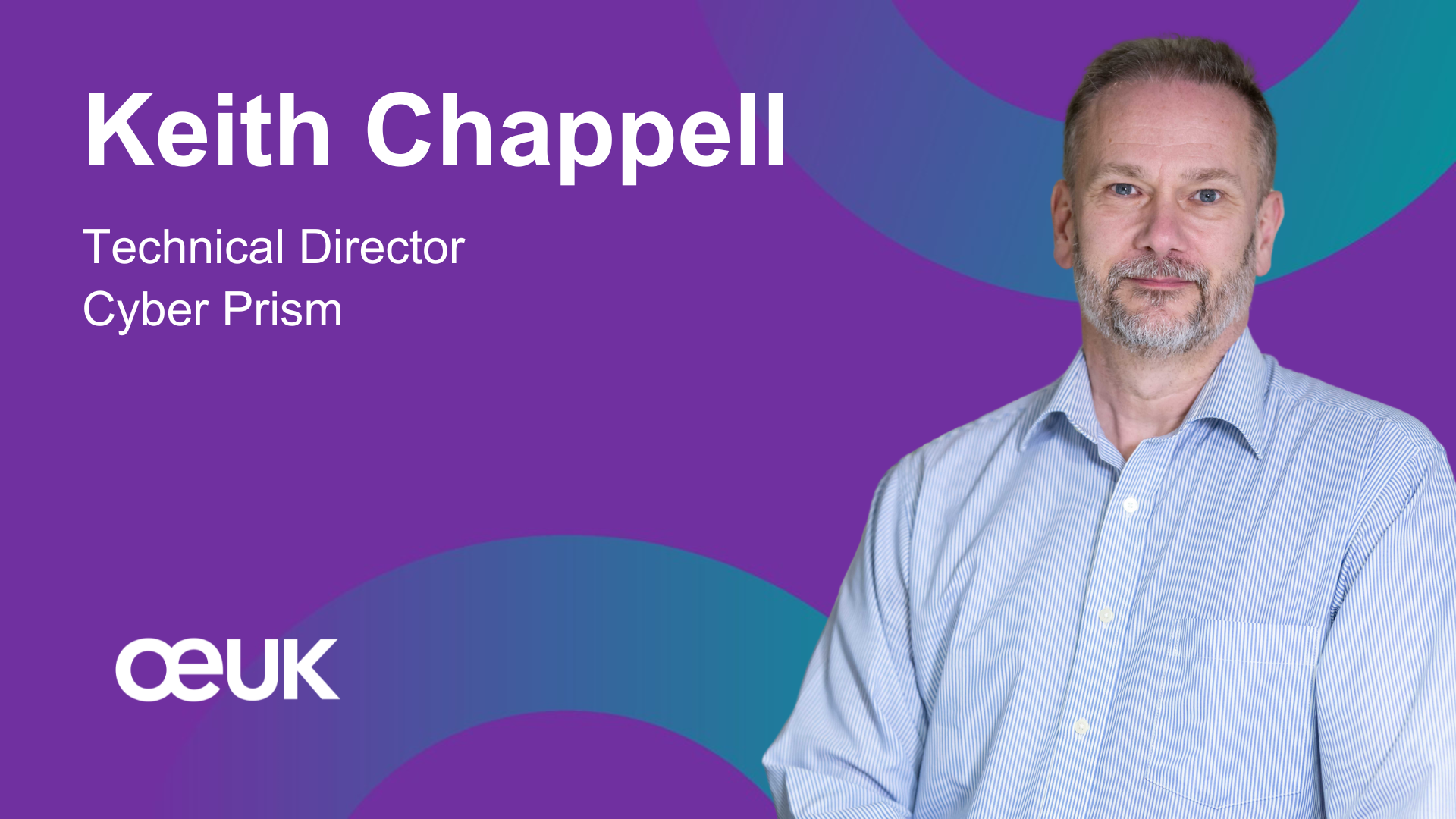Keith Chappell is the Technical Director at Cyber Prism. He has an educational background in electrical and electronic engineering, alongside computer-based control and has worked in the energy industry for the last 40 years.
“I think energy source diversity will be key to the UK’s energy supply integrity and there will probably always be a place for fossil fuels, especially when combined with CC and CCS technologies.”
I was born on a Roya Air Force base in Yemen to serving parents, from which I was later evacuated to Bahrain, before moving to Yorkshire, which I would say was the place that first felt like ‘home’. However, I now live in Hampshire. Over the span of 40 years, I’ve held approximately 10 different engineering roles across the energy sector, set into motion by my educational background in electrical and electronic engineering, alongside computer-based control.
I launched my career by designing and commissioning control systems for high-force and high-accuracy hydraulic systems used in industries like mining and space research. I then moved into probably the best job imaginable to be a young engineer, an international troubleshooter for power generation construction projects; after this, I returned to the UK shifting my focus to building a family.
This was followed by a decade-long stint at Siemens, where I consulted and worked on delivering power station control systems, later moving to RWE Power as a Lead Control Systems engineer – this experience paved the way for my role as a new Build Plant Security Design Engineer. After this I went on to work with Emerson Process Management to lead their Power and Water Control business in the UK.
However, in 2012, I found myself struck by an environmental conscience and made the decision to move into i2O water to develop and deploy non-revenue water loss mitigation systems based on monitoring and real-time cloud-based control. After that came a period in defence focused on cryptology and hardening of communications used in operational technology systems. Which finally brings us to my period of management consulting prior to helping establish Cyber Prism Ltd in 2016.
So, it’s fair to say my job has changed a lot throughout the years – and I’d say right now, my job sees an equal divide between fee earned work and internal work which can range from product and team development to project-based work, along with business oversight. Having amassed 40 years within the industry, it’s become quite apparent that this sector is exceptionally unique in enabling us to pivot into other endeavours by utilising existing assets with enhanced oil recovery, repurposing existing assets for carbon storage or sequestration or developing new plants to potentially exploit hydrogen and other cleaner fuels. I think energy source diversity will be key to the UK’s energy supply integrity and there will probably always be a place for fossil fuels, especially when combined with Carbon Capture and Carbon Capture Storage technologies. And this is an exciting time for the UK energy landscape, we’re seeing a societal shift towards energy efficiency and storage, along with clean energy derivation and transmission – we’re making a lot of positive strives towards a cleaner energy future which is an exciting journey to be a part of.
There have been many proud moments over the last 40 years, but my last 20 years in Cyber have had many notable moments. Oddly enough, I’m proud that absolutely nothing has happened to a plant – because it means the protection protocols implemented were a success. But above all else, I’m proud of the team we built that made this happen and ensured our customers were protected.
If pressed for a career best, I would probably call out the automation of the simulation media control valves for the European Transonic wind tunnel, which had unpreceded accuracy for the time – and working at a space center was also pretty cool.
For more information on Cyber Prism visit: CyberPrism – Safeguards your business-critical Operational Technology (OT).
Share this article



